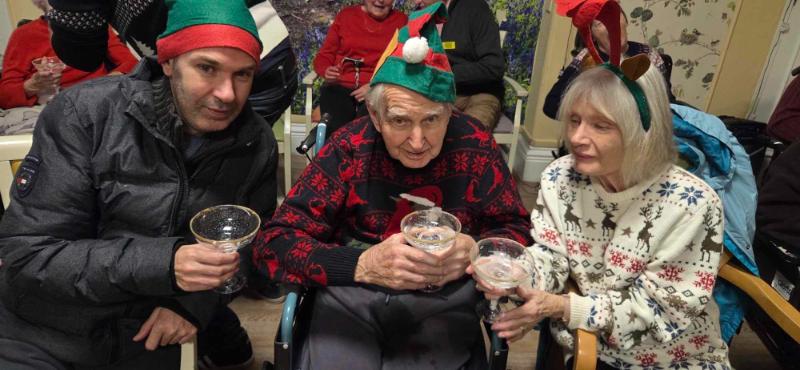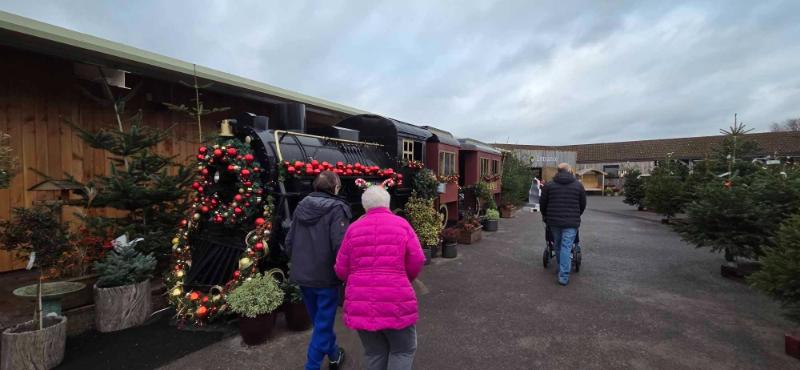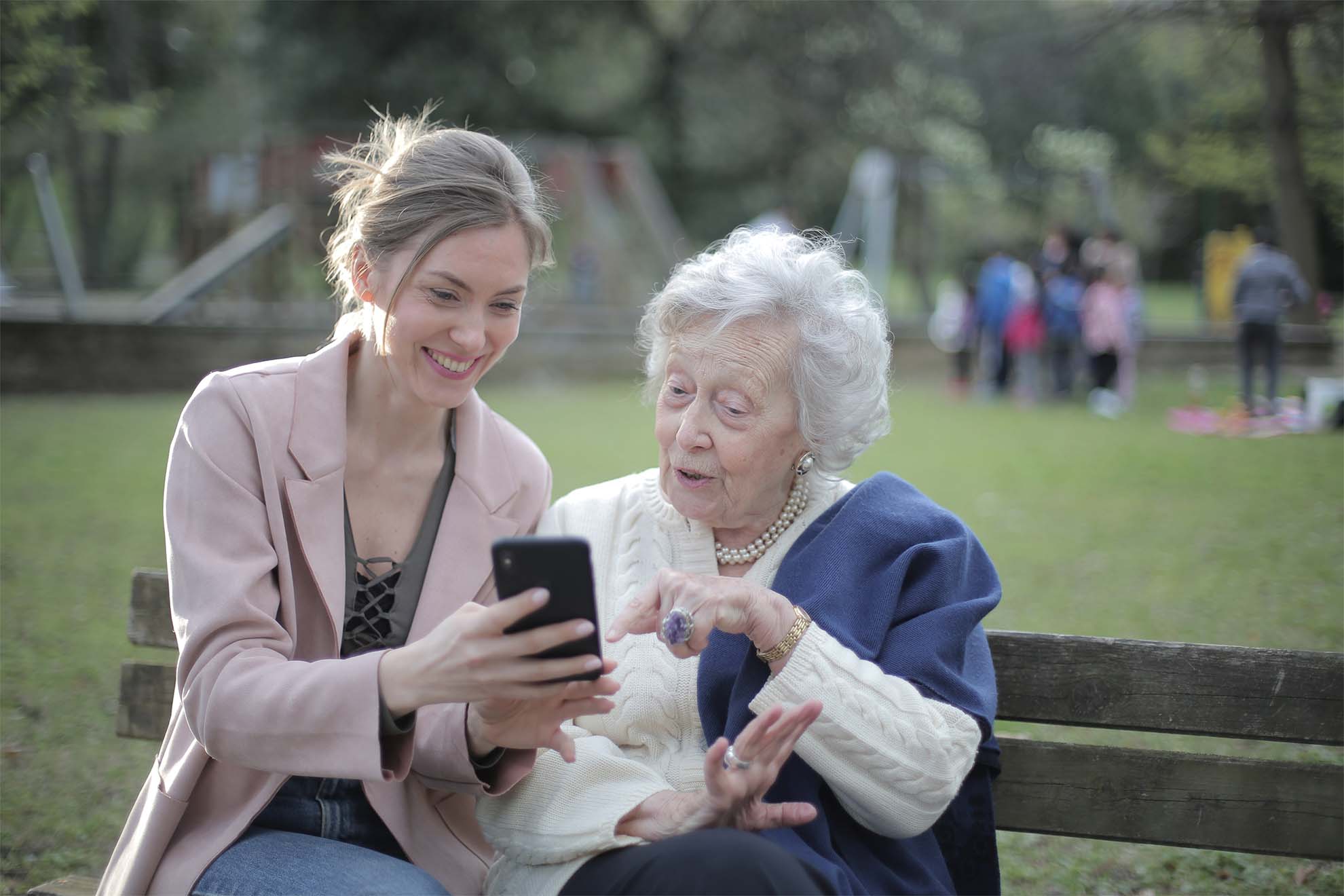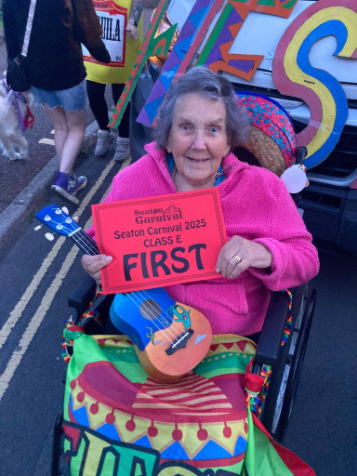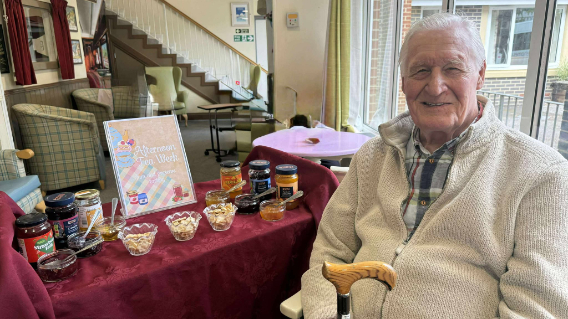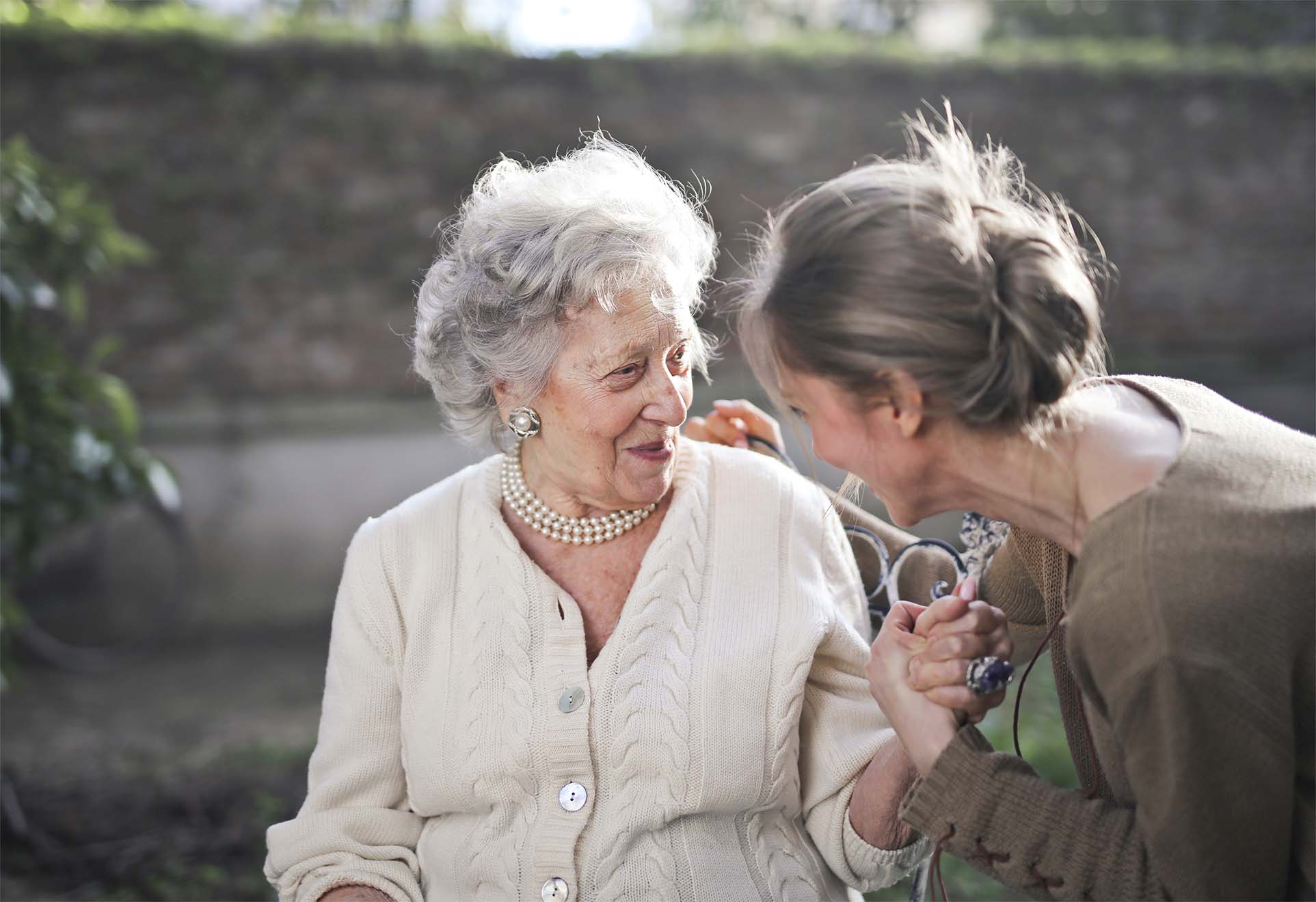Why Are Activities Important For Care Home Residents?
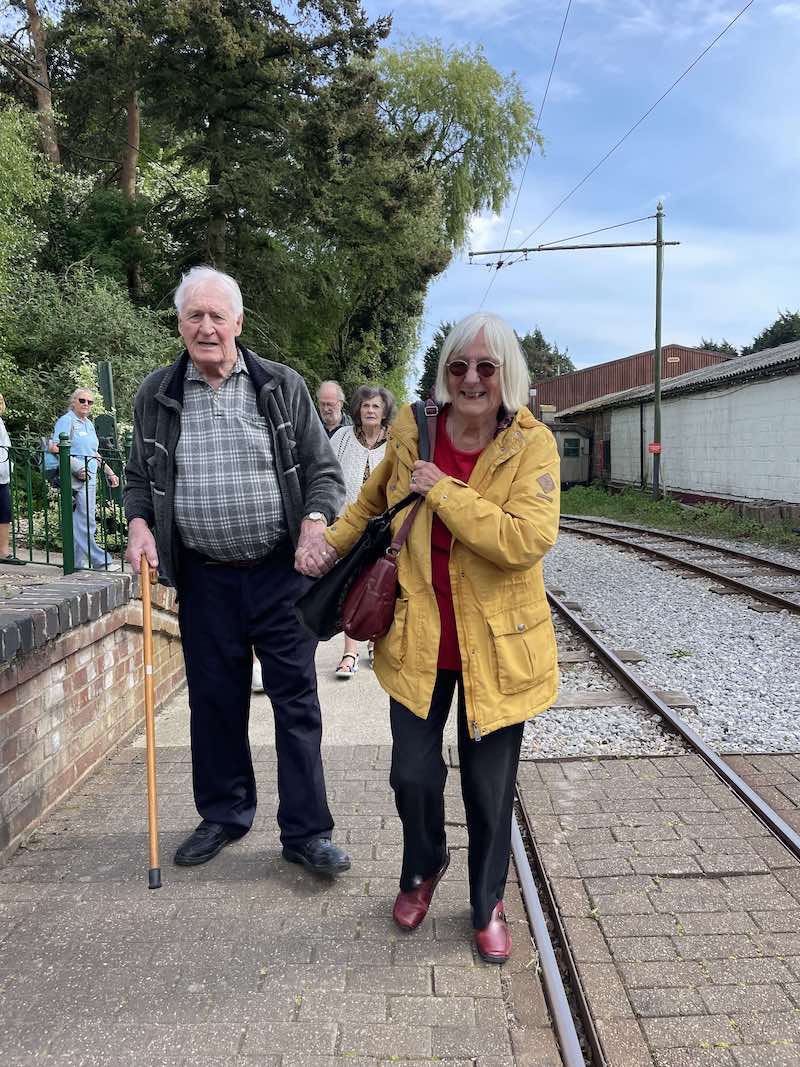
Moving to a care home can bring comfort, safety and companionship to older adults, but it also presents a shift in daily routines. In a care setting, it is important to provide regular opportunities for residents so they can maintain their independence and continue doing what they love.
Providing residents with meaningful activities does far more than simply passing the time. It encourages residents to take part in daily life, build friendships and stay connected to themselves and the world around them. In this blog, we further explore why activities are important for residents and examples you could expect care homes to provide.
Benefits of Meaningful Activities in Care Homes
Below, we have described our top 5 benefits of providing activities in a care home for the elderly:
Boosts Mental Wellbeing
Engagement in meaningful activities plays a key role in maintaining the quality of life and mental health of residents. Incorporating regular activities can reduce stress, ease symptoms of anxiety or low mood and help residents feel happier and more fulfilled in their daily routine.
Improves Physical Health and Mobility
Maintaining physical health is vital in later life and regular movement has clear benefits. Incorporating physical activities into an activity programme supports muscle strength, joint flexibility and overall mobility, which in turn helps to reduce the risk of falls. These physical benefits can support independence for longer and contribute to a higher level of enjoyment in everyday tasks.
Encourages Social Connection
One of the most valuable aspects of living in a care home is the opportunity to form new relationships and enjoy regular contact with others. Taking part in shared experiences fosters a sense of belonging, supports meaningful conversations and helps build lasting connections with residents, staff and visitors.
Supports Cognitive Function
Gentle mental stimulation improves coordination, cognitive abilities and confidence in decision-making. For those living with dementia or other conditions, these experiences can help provide familiarity and reassurance.
Reduces Feelings of Loneliness
When residents are provided with daily opportunities to connect with others and get involved with the things they love most, it can reduce feelings of loneliness or isolation and lead to a higher quality of life. One of the biggest benefits of a care home is interacting with like-minded individuals in a supportive environment, and regular activities only enhance this.
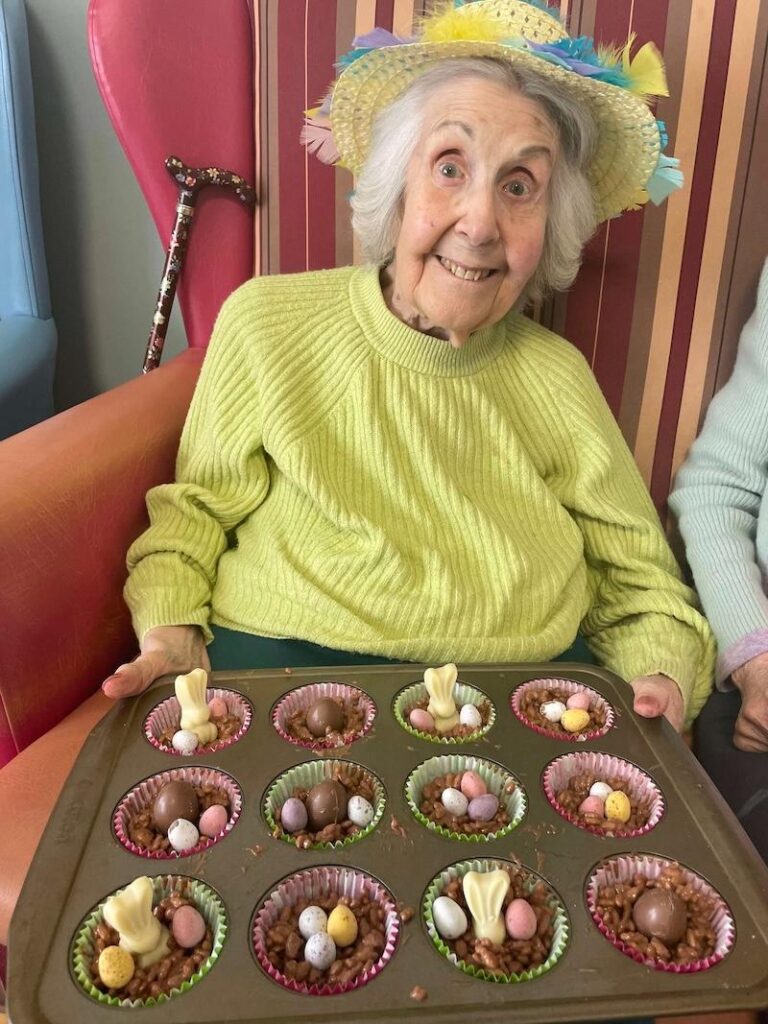
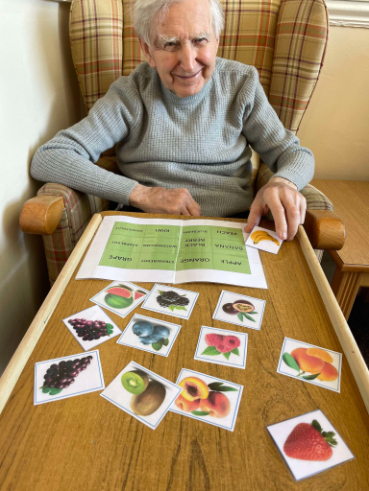
What Activities Do Care Homes Offer?
Most care homes offer a wide range of leisure activities designed to suit the interests and abilities of their residents. Typically, there will be in-house activities coordinators who play an essential role in planning activities that are both engaging and meaningful.
Below are some meaningful activities you could expect a care home to offer to its residents.
Gardening and Outdoor Activities
Spending time outdoors offers residents fresh air, a change of scene and the chance to connect with nature in a calming and satisfying way. Gardening not only improves mood and provides gentle physical activity, but it also supports fine motor skills and hand strength. Some care homes will offer other outdoor activities such as bowls, golf, flower arranging or an outdoor book club.
Arts and Crafts
Arts and crafts allow residents to express themselves and explore their creativity in a supportive environment. Using materials such as paints, fabrics or clay can help with motor skills and give residents a real sense of accomplishment as they have a physical end result. Group creative activities also encourage conversation and often spark memories that lead to residents sharing personal stories.
Reminiscence Therapy
Reminiscence sessions are particularly effective for those living with dementia or memory loss. Whether sessions include music, storytelling, old photographs or objects from the past, these sessions invite residents to reflect on their cherished memories, life stories and connect with their identity.
Pet Therapy
Pet therapy sessions are a common favourite in a care home as they help reduce stress, lower blood pressure and boost mood. The simple act of stroking a dog or feeding a Shetland pony can provide joy and a powerful emotional connection.
Baking and Cooking Sessions
Cooking sessions give residents the chance to be involved in preparing food in a safe and supported way. From making mini pizzas to decorating cupcakes, these activities often stimulate the senses and bring back memories of their past. These sessions can be adapted to meet different needs and encourage independence, while also supporting coordination and cognitive stimulation.
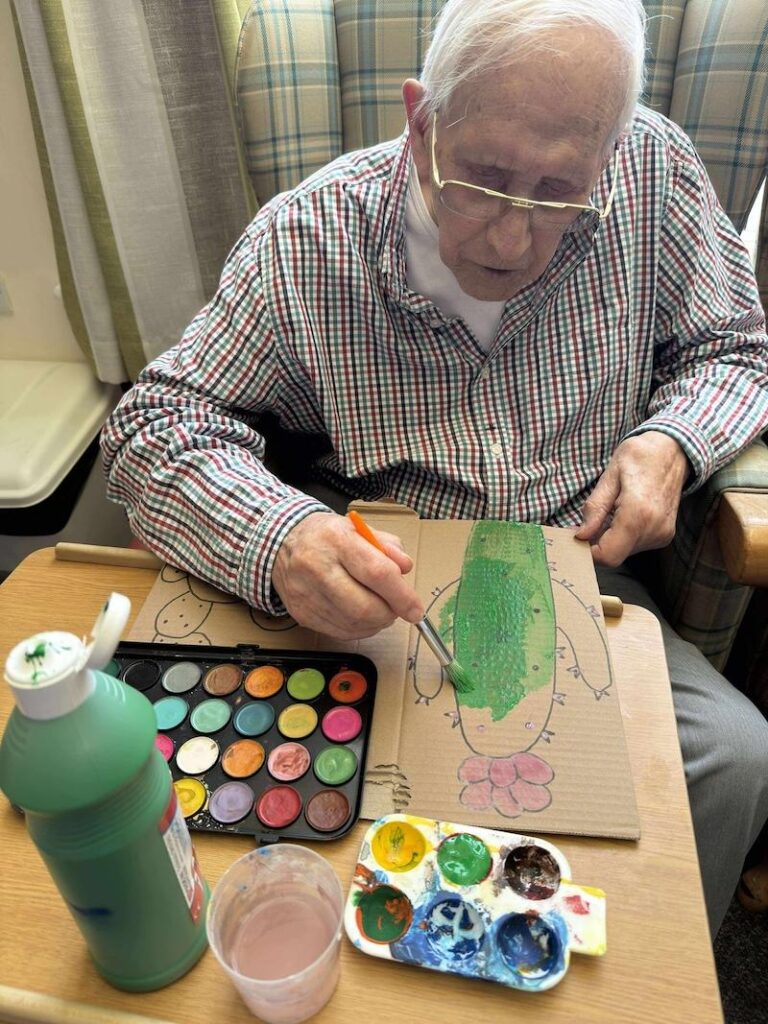
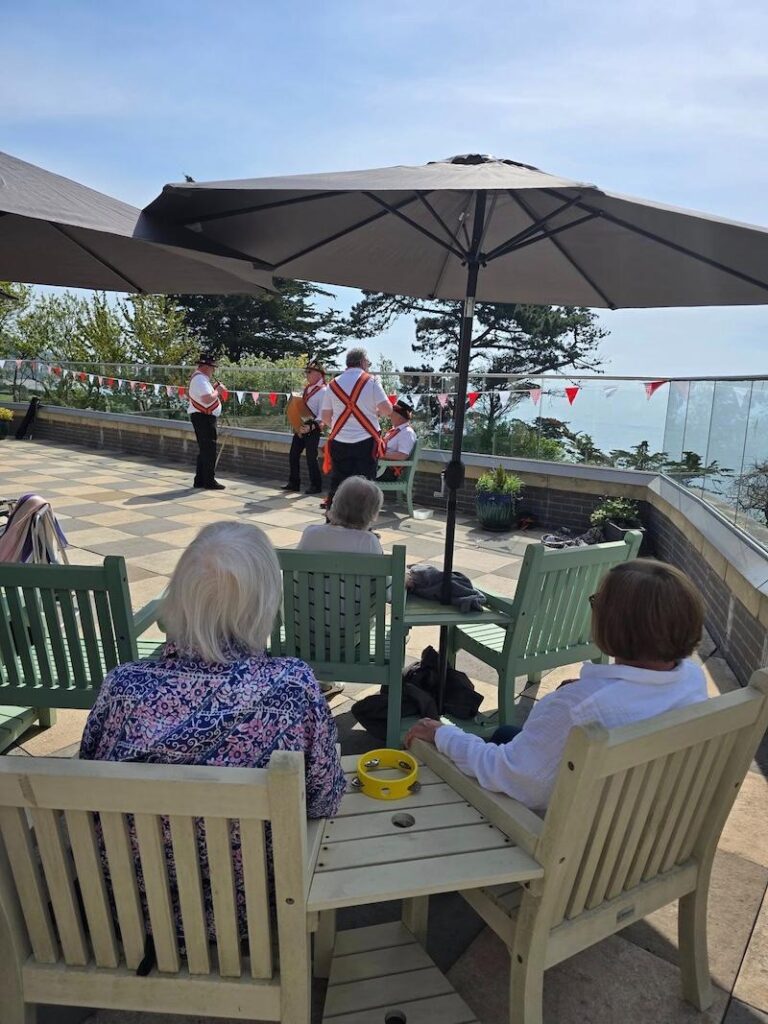
Gentle Exercise and Movement
Keeping physically active is important for older adults. Care homes often run seated exercise classes, low-level dance classes or simple routines that include stretching, balance work and light resistance. These sessions support physical health, core strength and flexibility in a supportive environment alongside like-minded individuals.
Music and Live Entertainment
Live entertainment and music sessions can bring a huge sense of joy to residents in a care home. From visiting performers to sing-alongs, these activities spark emotion, lift mood and often encourage movement. Music also plays a vital role in connecting with residents living with dementia, as it can encourage reminiscence and allow them to express themselves easily.
Trips Into the Local Community
Regular trips to local places, whether it’s a nearby café, garden centre or community hall, help residents maintain links with the wider community. These outings provide a change of scenery, encourage new relationships and give residents something to look forward to. Staying connected with the local community also helps them feel more at home in their environment.
Tailoring Activities to Each Individual
The best care homes offer a wide range of activities but also take the time to tailor activities to each person’s history, preferences and abilities. Activities coordinators work closely with residents and their families to ensure the programme reflects their interests and supports both emotional and physical needs.
Whether someone prefers a quiet afternoon of knitting or a lively game of bingo, the aim is always to create opportunities for meaningful engagement. These person-centred activities help each resident fill their days full of what they love most.
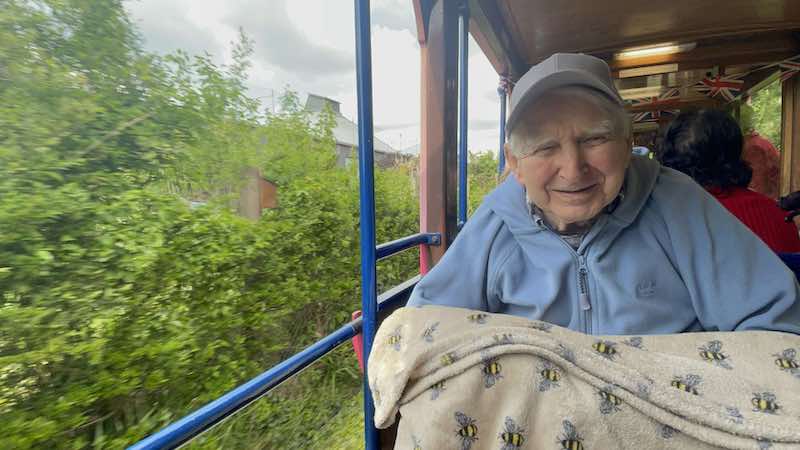
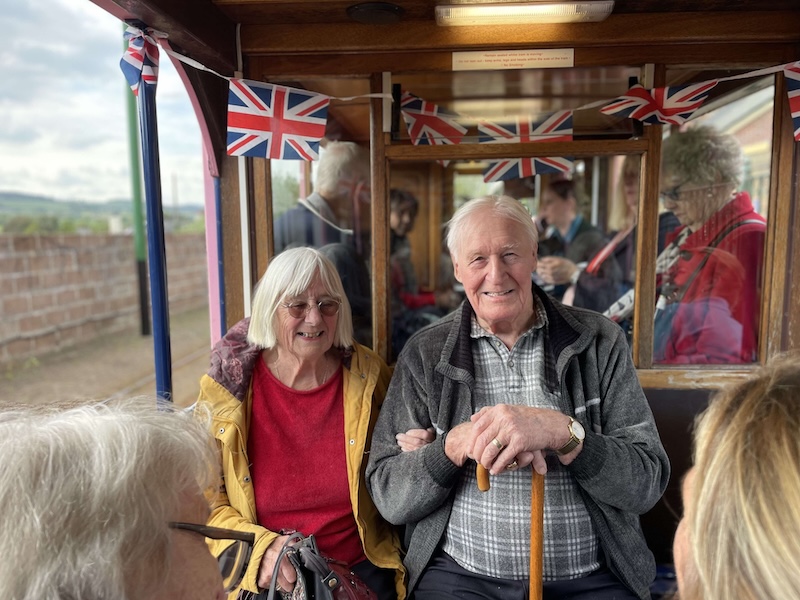
Activities Tailored to You at The Check House Care Home
At The Check House Care Home in Seaton, activities are a core part of daily life. We offer a warm and welcoming environment where residents are encouraged to take part in the things they enjoy most. Whether it’s a quiet day of colouring indoors or a chance to get outdoors for fresh air and social interaction, our activities programme is designed to support both mental and physical health around the clock.
No two days are ever the same at The Check House. Our approach provides each resident with the freedom to choose how they’d like to spend their time, whether that’s trying something new or enjoying familiar pastimes. Whether our residents require residential care, nursing care, dementia care or respite care, they can rest assured that there will be something for everybody to enjoy.
As well as our activities programme, residents have access to our in-house facilities on an unlimited basis, including our private terrace, hair salon & treatment room, reading room and in-house pub called The Snug Inn.
If you’d like to learn more about the activities we offer or come and see life at The Check House for yourself, we’d be delighted to welcome you. Book a tour today!

